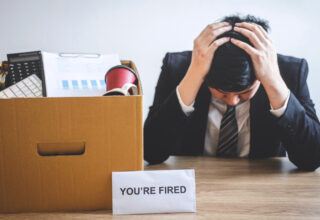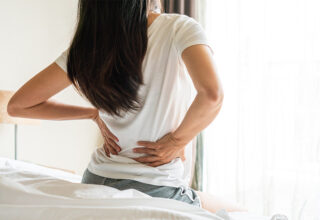Appendicitis is the inflammation of the appendix—a small finger-like organ attached to your large intestine, on the lower right side of your belly. Appendicitis is common and affects around 5 to 10% of people at some point in their lives.
Appendix isn’t essential for survival, but if it becomes infected or inflamed and is left untreated, it can become dangerous. That’s why it’s important to know early signs of appendicitis and what can contribute to it.
Many people wonder whether what they eat can play a role in developing appendicitis. While no specific food can directly cause appendicitis, there are some foods that can more likely cause blockage of appendix leading to appendicitis.
Can Food Really Cause Appendicitis?
The short answer: “not directly”. Most cases of appendicitis are caused by the blockage in the appendix. This blockage can be caused due to hardened stools, swollen lymph nodes due to an infection, inflammation of your colon from infection or inflammatory bowel disease, or in some cases tumors.
That said, there are some foods that can cause constipation or are hard to digest, which can increase the chances of blockage.
Foods that May Trigger Appendicitis
There are some foods which might increase your risk of developing appendicitis if you eat them in excess or without proper chewing. These include:
High Fat and Low Fiber Foods
Heavy and greasy meals like cheesy pizzas, full-fat dairy, and fatty cuts of meat can be tough on your digestive system. They can slow your bowel movements leading to constipation and bowel irregularities, both of which can cause inflammation and infection in the appendix.
What you can do is use olive oil instead of butter and opt for lean meats like turkey or skinless chicken.
Processed Meats and Fried Foods
Foods such as sausages, bacon, nuggets, and fried chicken are high in saturated fats, salt, and preservatives, and are low in fiber. These foods can slow down digestion, cause gut inflammation, and even damage to the lining of your digestive tract.
As slow digestion and low fiber intake can make blockages and infections of appendix more likely, it’s better to avoid these foods.
You can swap them with options like grilled chicken, baked fish, or plant-based proteins.
Refined Carbohydrates and Sugary Snacks
White bread, pastries, sweets, and sugary cereals can cause an increase in blood sugar levels and insulin spike. This can cause gut inflammation and may increase the risk of infection and blockages in the appendix.
On top of that, high sugar intake may also affect the balance of healthy gut bacteria which may also add to the risk of developing appendicitis.
Seeds and Nuts
Tiny seeds from fruits like strawberries and nuts may get stuck (rarely) in the appendix, if not chewed properly. Though the chances are less, it’s better to enjoy these foods in moderation and chew them well.
Popcorn
Popcorn kernels, especially unpopped ones can be difficult to break down. They have been reported in a small number of appendix blockages. So make sure to remove hard kernels before eating them and chew them carefully.
Spicy and Acidic Foods
Spicy dishes and acidic foods like tomatoes, vinegar, and citrus fruits don’t directly cause appendicitis. But they can irritate the gut lining and worsens the symptoms if inflammation is already present.
So if you often have indigestion or stomach ache, try to avoid spicy and acidic meals and see if your symptoms improve.
Dried Fruits
Dried fruits like raisins, prunes, and apricots are nutritious but can be heavy on your digestive system if you eat them in large amounts.
It’s better to eat them in small portions and drink water with them to help them pass through smoothly.
What to Eat Instead
Instead of cutting out entire food groups, you can focus on balanced and digestion friendly-habits like:
- Eat plenty of fiber from whole grains, beans, fruits, and vegetables. Just a heads up: Increase your fiber intake gradually if you’re not used to it.
- Drink enough water to help keep your stools soft so they can pass easily.
- Chew your food properly so there’s less strain on your digestive tract.
- Stay physically active to promote healthy bowel movements.
Here are some more tips to support your digestive health.
Early Signs of Appendicitis to Watch For
Even with a healthy diet, anyone can still develop appendicitis. So it’s important to recognise early warning signs. These include:
- Sudden pain around the belly button that moves towards the lower right side of your belly
- Nausea or vomiting
- Loss of appetite
- Fever or chills
- Constipation or diarrhoea
Frequently asked questions about appendicitis
1. What is appendicitis?
Appendicitis is when the appendix—a small organ attached to the large intestine—becomes blocked and inflamed.
2. Can eating seeds or nuts cause appendicitis?
Not directly. It’s very rare, but small seeds or nuts may cause blockages in some cases, especially if digestion is already slow.
3. Can I prevent appendicitis by changing my diet?
You can’t prevent it completely. But having a balanced diet and drinking plenty of water can prevent constipation and may reduce your risk of developing appendicitis.
4. Can appendicitis go away on its own?
No, appendicitis doesn’t resolve without treatment. Delaying treatment can lead to a burst appendix, which is life threatening.
5. How long does it take to recover from an appendectomy?
It typically takes about 2 to 4 weeks to fully recover, depending on the type of surgery you had (open or keyhole). Most people start doing light activities within a few days to a week. Always listen to your doctor’s advice for a safe recovery.
Final Thoughts
Food doesn’t directly cause appendicitis, but poor digestion and constipation can make blockages more likely. However, you can possibly decrease the risk by keeping your gut healthy by eating a balanced diet, drinking plenty of water, and chewing your food properly.
If you experience any signs that point towards appendicitis, you should see your doctor right away. If left untreated, appendicitis can become very dangerous.








